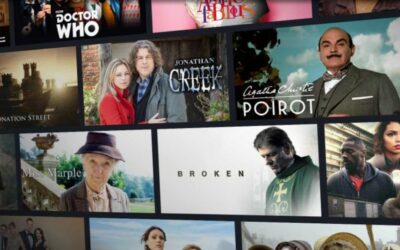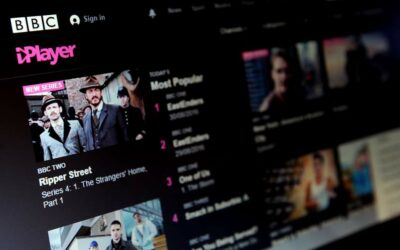Ofcom’s annual report on the BBC says the corporation is risking a “lost generation” as television viewing among 16-24 year olds falls below 50% for the first time.
The regulator said that while the BBC was “generally serving people well” it should implement a “clear plan” to reach “younger and disengaged audiences.”
It explained that the BBC “may not be be sustainable in its current form” should it fail to regain younger audiences.
“We have found that the BBC is generally serving viewers and listeners well, through the breadth and quality of its programmes. People’s satisfaction with the BBC remains high – comparing well with other TV and radio broadcasters,” it stated.
“But like many broadcasters, the BBC is vulnerable to a rapidly changing media landscape. The corporation has acknowledged it is struggling to engage and retain younger audiences, and it is working to address this – such as by launching BBC Sounds and making programmes available for longer on iPlayer.
“Ofcom’s findings show that the BBC must do much more to connect with today’s children and younger adults – through relevant, appealing, and well-placed content – or it could lose a generation of potential licence-fee payers.”
Last year, for the first time, less than half (49%) of young people tuned into BBC TV channels in an average week. It was lower for males, with the figure at 46%.
According to the research, those aged between 16-34 spent an average of one hour and 12 minutes with the BBC every day – five minutes less than the previous year, and half as much time as audiences overall.
CBeebies has also seen its reach fall, with the proportion of children aged between 4-6 watching the MediaCityUK-based channel, fall from 39% to 34%.
BBC iPlayer’s reach of 15-24 year olds fell from 28% to 26%, while Netflix saw its younger audience increase from 56% to 66%.
Ofcom also said that the amount of time 18-24 year-olds spent each day on BBC websites dropped by a quarter, from 2 minutes 43 seconds each day, to 2 minutes.
News
The review also looked into news broadcast and showed that the BBC remained the country’s primary news source and has maintained its reputation for “trusted and accurate reporting.”
Younger people, however, are increasingly using social media and aggregator services, including Apple News and Upday.
The figures for 16-24 year-olds:
- Less than a quarter (23%) watched BBC TV news during 2018, a drop of over a third in just five years.
- Fewer than one in 10 (8%) watched current affairs across BBC TV, around half the proportion who watched five years ago.
- More than three quarters (76%) now use social media for news.
Audiences
The regulator also looked into how the BBC was reaching its audiences and found that older women and those from lower socio-economic groups are ”dissatisfied with how they are portrayed on the BBC.”
Ofcom did say that BBC was performing well on editorial standards and output.
“In the vast majority of cases that we considered during the year,” reads the report.
“The BBC is meeting the standards of Ofcom’s Broadcasting Code, as well as our regulatory conditions.
“The BBC is still a vital, valued part of British culture. But we’re concerned that a new generation is tuning out of its services. So the BBC must set out bolder plans to connect with younger viewers and listeners,” said Sharon White, Ofcom Chief Executive.
“We also want the BBC to broaden the appeal of its news, which some viewers and listeners feel isn’t relevant to their lives. And the BBC must find ways to be more distinctive online, where our research shows younger people are passing it by.”
Ofcom has set out the following recommendations:
- The BBC should set out clear plans for producing distinctive, innovative content that reaches younger audiences where they want to find it.
- The BBC needs to set out a more detailed plan for improving how it represents and portrays the whole of UK society, including less satisfied groups. In news it says the BBC should focus on “authentic news and current affairs content that feels relevant and engaging to all audiences.”
- The BBC’s online content needs to do more to stand out. It should publish the steps it is taking to help all audiences – especially younger people – understand and engage with the world.
- Support other news sites. Our work indicates that the BBC could provide more links to external, third-party content. External links support the wider news industry and benefit audiences by providing access to a wider range of material.
- Transparency. Our annual report also raises serious concerns about the BBC’s openness and transparency. These include the BBC’s reluctance to engage effectively with parties affected by changes to licence-fee funded services; and how it releases and explains its decisions on editorial compliance, something Ofcom is examining as a matter of urgency. A commitment to transparency will aid trust in the BBC.











